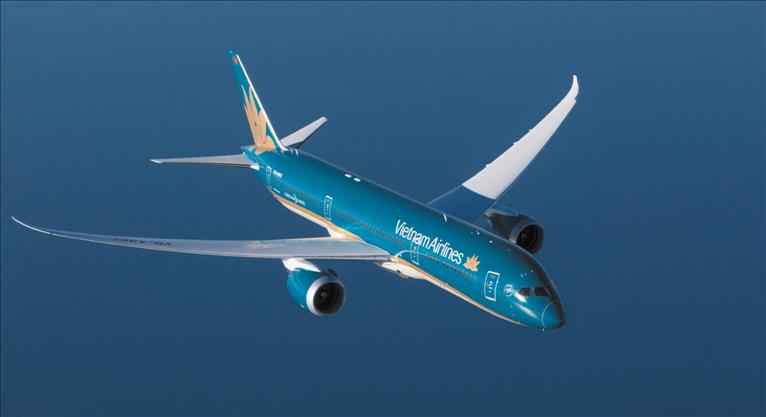Vietnam Airlines served over 18 million passengers this year, a huge improvement from the past two years. The Southeast Asian carrier hit almost three-quarters of its annual revenue compared to 2019 as its recovery continues.
At a recent annual review meeting, Vietnam Airlines CEO Lê Hổng Hà offered an update on the carrier’s yearly performance. The carrier reported revenues of VND72.36 trillion (US$3.02 billion) for 2022, exceeding its combined revenues for 2020 and 2021. The Vietnamese airline handled over 18 million passengers over the past year, up from 6.1 million in 2021, and 211,900 tonnes of cargo.
However, the carrier continues to lose money, projecting a pre-tax yearly loss of around VND9.2 trillion ($389 million). Vietnam Airlines racked up huge losses of nearly $1 billion over the first two years of the pandemic. One positive note is that the airline’s yearly revenues exceeded its projections by over 20 per cent.
Entering 2023, Vietnam Airlines warns that its operations will continue to be affected by the Russia-Ukraine conflict, inflation, rising fuel prices and the risk of an economic recession. It will focus on corporate restructuring, improving operational efficiency, and increasing labor productivity to narrow its losses further.
Vietnam Airlines has added approximately 500 flights to its schedule having seen a boom in demand for its services during the upcoming Tet holiday period. The carrier will offer up to 90,000 additional seats on several domestic routes around Vietnam’s New Year holiday period, which begins on January 22nd.
According to The Star, a representative from Vietnam Airlines said travelers are booking flights with earlier departure dates than usual. The carrier has already bolstered frequencies twice this year – once in August and again earlier this month – adding millions of seats to its domestic and international routes.
On top of this, Vietnam Airlines recently resumed services to both Hong Kong and China following almost three years away. Expect the airline to add frequencies to both countries in the coming months if demand holds up.


